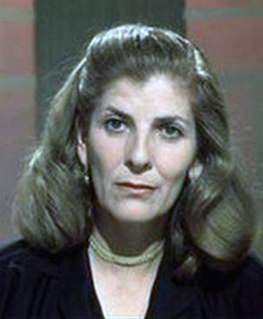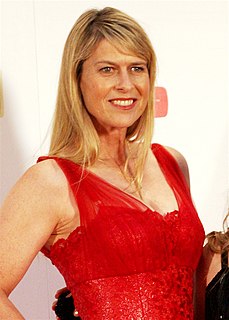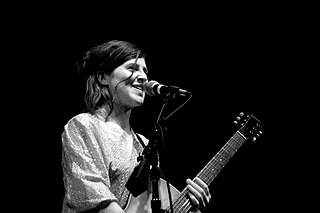A Quote by Tori Amos
I think everyone understands grief, the journey it takes us on, whether it's the death of a loved one, the end of a relationship, a disappointment. Some people don't deal with it, the power of it. Some do. Some feel the weight of it and it informs their choices. I've had to open up to grief in different contexts.
Related Quotes
I'm working on forgiving myself for some not-so-hot choices I've made in my life. I neglected two people I loved dearly. They are both dead now and I obviously can do nothing to repair or change that, and I grieve every day for those choices. That grief can be paralyzing, but it has made me understand the pain of holding on to unfinished business. In my case, I had put work first. I will never do that again. Having made that choice, I find the grief in my heart finally abating. Now I teach the need to forgive yourself and others relentlessly.
It is a strange paradox that while the grief of football fans(and it is real grief) is private - we each have an individual relationship with our clubs, and I think that we are secretly convinced that none of the other fans understands quite why we have been harder hit than anyone else - we are forced to mourn in public, surrounded by people whose hurt is expressed in forms different from our own.
He didn't know of course. Not really. And yet that was what he said, and I was soothed to hear it. For I knew what he meant. We all have our sorrows, and although the exact delineaments, weight, and dimensions of grief are different for everyone, the color of grief is common to us all. "I know," he said, because he was human, and therefore, in a way, he did.
Grief causes you to leave yourself. You step outside your narrow little pelt. And you can’t feel grief unless you’ve had love before it - grief is the final outcome of love, because it’s love lost. […] It’s the cycle of love completed: to love, to lose, to feel grief, to leave, and then to love again. Grief is the awareness that you will have to be alone, and there is nothing beyond that because being alone is the ultimate final destiny of each individual living creature. That’s what death is, the great loneliness.
I think that there is a purity aesthetic, like "I just make art because I'm an artist and I can't help it. I don't care what the critics say." But different mediums have a different relationship with the public. If you're in a performing medium it's hard not to place some weight on whether or not people come to your shows, or whether or not they're enjoying them.
Everyone's "journey" is different. Obviously with mine, I've had some amazing breaks, but then you have to be ready to seize the moment when the timing and the luck line up. You can't be afraid. You have to be open. I feel like I've always been a leaper, and I've always leapt into things without thinking.
Some people think elections are a game: who's up or who's down. It's about our country. It's about our kids' future. It's about all of us together. Some of us put ourselves out there and do this against some difficult odds. We do it, each one of us, against difficult odds. We do it because we care about our country. Some of us are right, and some of us are not. Some of us are ready, and some of us are not. Some of us know what we will do on day one, and some of us haven't thought that through.
In some contexts in Pakistan maybe a beard is negative. It depends. And in some contexts in America maybe a beard is positive. I think there's certainly lots of hipster communities where having a beard makes me look a little bit less like a, you know, middle-aged fuddy-duddy. And there's some places in Pakistan where having a beard, you know, certain corporate contexts, certain social contexts, where it's not an advantage to have a beard.




































